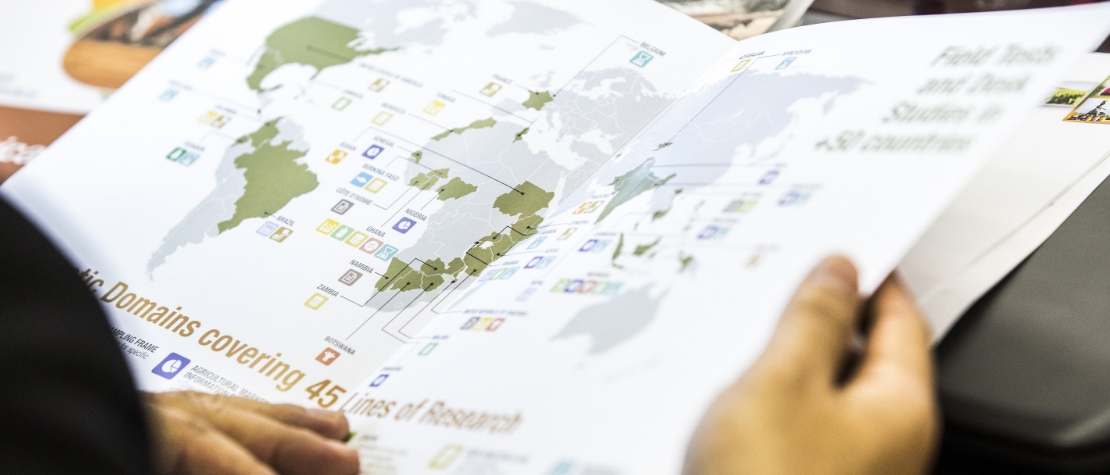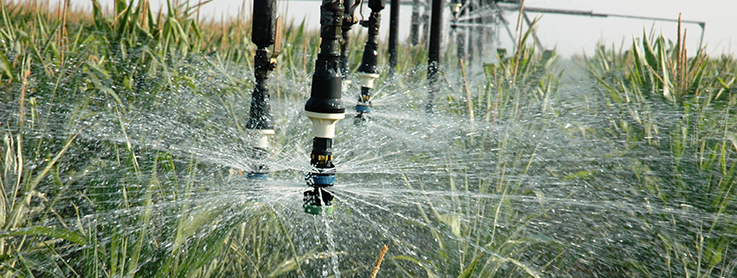Statistical Capacity Development

One of the key missions of FAO is to support member countries develop the capacity of their statistical systems and enable them to collect, analyze, disseminate and use relevant, reliable and timely data. By strengthening countries’ capacity in this area, FAO contributes to make available key analytical and decision-making support tools for national, regional and global evidence-based actions.
How can national governments request capacity development assistance?
National governments should discuss on an ongoing basis their statistical capacity development needs and priorities directly with their FAO country office. These needs and priorities will usually be reflected in the Country programming framework (CPF) and support will be planned in consultation with the relevant technical units and regional or sub-regional statisticians. If assistance requests are raised, the FAO country office will contact the relevant technical divisions and regional or sub-regional statisticians to analyze how the support can be provided.
FAO statistical capacity development activities are funded through:
- Technical Cooperation Programme (TCP)
- Regular programme funds allocated to technical divisions
- Extra-budgetary programmes that support statistical development.
For specific information and inquiries on FAO capacity development programmes, national governments are also encouraged to contact these programmes directly.
Statistical capacity development programmes

UN-Water Integrated Monitoring Initiative for SDG 6 (IMI-SDG6): Monitoring Target 6.4 of the Sustainable Development Goals (SDGs)
Integrated Monitoring Initiative for SDG 6 (IMI-SDG6) is a global multi-agency project implemented jointly by FAO, UN-Habitat, UNECE, UNESCO, UNEP, UNICEF, WHO and WMO, operating under the UN-Water umbrella. The overarching goal of the Initiative is to accelerate the achievement of SDG 6, by increasing the availability of high-quality data for evidence-based policy-making, regulations, planning and investments at all levels.
The Initiative focuses on integrating and expanding already existing monitoring efforts on the entire water cycle, including wastewater treatment and water quality (target 6.3), water stress and water use efficiency (target 6.4), integrated water resources management and transboundary basins (target 6.5), and water-related ecosystems (target 6.6).
As the custodian agency for the monitoring of SDG target 6.4., FAO supports countries in collection, analysis and reporting of SDG indicators 6.4.1 (Change in water-use efficiency over time) and 6.4.2 (Level of water stress: freshwater withdrawal in percentage of available freshwater resources). In particular, FAO provides member states with methodological and monitoring guidance and engages them in developing their capacity for an integrated water sector monitoring. At the national level, FAO in collaboration with the other implementing partners of the Initiative also promotes intersectoral collaboration and consolidation of existing capacities and data across agencies.
The Integrated monitoring Initiative has a global coverage; hence, all countries are entitled to request monitoring and capacity development support.
Related capacity development resources
SDG Indicator 6.4.1:
- E-learning course on "Change in water-use efficiency over time" (available in Arabic, French, English, Portuguese, Russian and Spanish)
- Step-by-Step Monitoring Methodology (available in English, French, Portuguese and Spanish)
- SDG Indicator 6.4.1 - Analysis and interpretation of preliminary results in key regions and countries
- Progress on Water-Use Efficiency – Global baseline for SDG indicator 6.4.1 (2018)
SDG Indicator 6.4.2:
- E-learning course on "Level of water stress" (available in Arabic, English, French, Portuguese, Spanish and Russian)
- Step-by-Step Monitoring Methodology (available in English, French, Portuguese and Spanish)
- Incorporating environmental flows into “water stress” indicator 6.4.2 - Guidelines for a minimum standard method for global reporting (available in English, French, Portuguese and Spanish)
- Progress on Level of Water Stress – Global baseline for SDG indicator 6.4.2 (2018)
